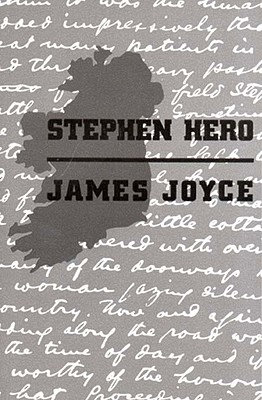APS TOGETHER
Day 10
Stephen Hero by James JoyceXXIV, pp. 181-199
January 21, 2022 by Belinda McKeon
Stephen Daedalus, #payartists advocate. You won’t catch him contributing to anything “for the exposure.” His friend McCann is editing a new journal—created by the Jesuits to distract from a bout of bad press—and he’s hoping for an essay from Stephen. But not something incomprehensible, “something we can understand,” he says. “Condescend a little.”
A little? Has he forgotten who he’s talking to? Anyway, Stephen has no intention of contributing, given that, firstly, the journal is overseen by a priest and, secondly, that he won’t be paid. “I thought you were an idealist,” McCann says on this score. “Good luck to the paper,” says Stephen, waving a condescending little wave.
In a nice dab of irony, St. Stephen’s was the name of the journal on which McCann’s endeavor is based; it ran from 1901 to 1906, and was indeed overseen by a Jesuit. Stephen’s expectation of remuneration for his work as a writer, meanwhile, only grows stronger as he develops as a character for Joyce; it appears also in Portrait and in Ulysses, where he is chided for being the only contributor to a journal “who asks for pieces of silver.” In Stephen Hero, it makes for a comic scene which nonetheless underlines Stephen’s fierce belief in his own worth as a writer. The comedy continues, though, when Issue 1 of McCann’s journal is published, and Stephen almost blinds himself, so hard is he rolling his eyes. Around him, there’s the kind of excitement and chatter typical of publication day for any fledgling journal, and among those drawn into the excitement is Emma Clery, talking across from the library steps with her friends. Stephen regards them with—what else—condescension, feeling “charity” for their “modish and timid ways”, their “babble,” their “prattle.”
I’m not sure what to make of the “art of gesture” that Stephen goes on about in the middle part of Chapter XXIV; it sounds mostly like he wants to justify making a lot of rhythmic noise in the middle of Grafton Street, though there was a sort of philosophical movement around gesture at this time, as elaborated in books like A Manual of Gesture: Embracing a Complete System of Notation, and it’s an interest which Stephen carries forward, as a character, into Portrait and Ulysses. The bulk of his gestures and indeed his rhythms in this chapter, however, are of the cruder sort, as shown in two short scenes with Emma Clery, scenes representing the end of their short association, such as it was. In the first scene, Stephen walks her home; they flirt quite intensely, but, Emma makes clear her physical attraction to him, he puts his hand into his trousers pocket and begins “to finger out his coins.” It’s not a euphemism, but that it does seem to be a gesture of rejection, even an insult, becomes apparent as he (a) walks away from Emma and (b) shortly afterwards hands the coins over to a sex worker he meets along the canal. As for the final scene with Emma, well, tell me what you think of it. What I have to say about Stephen after this scene is probably best not published anywhere, not even in a journal that has nothing to do with the Jesuits.
